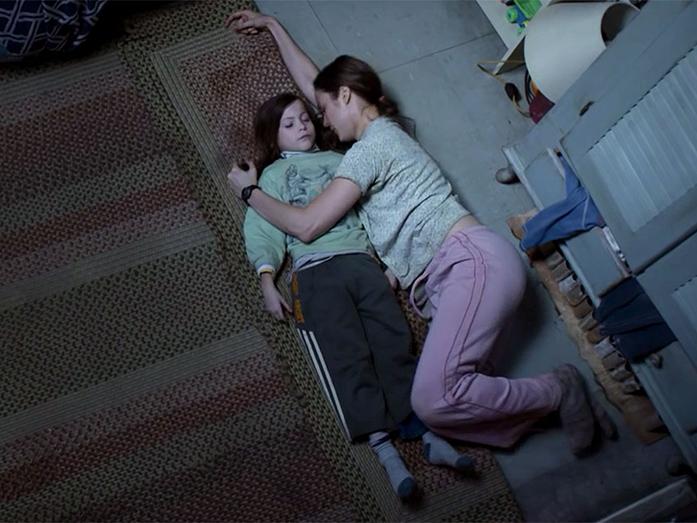Room, a film dealing with abduction and its oft-ignored aftermath, will open Nov. 25 at FilmScene, 118 E. College St.
By Girindra Selleck
The abduction narrative is as standard a formula in film as they come: kid gets abducted by bad guy, kid endures unspeakable torture, cops get a clue, cops rescue, bad guy gets punished.
While this tried-and-true formula has produced a number of successes in recent years (Denis Villeneuve’s excellent Prisoners among them) there is something inherently problematic with how these films fetishize the entire process up until the point of rescue, at which time the movie conveniently ends and the survivors’ stories of integrating back into the real world never end up being told.
Lenny Abrahamson’s new film, Room, based on Emma Donoghue’s Man-Booker-Prize-nominated novel of the same name, is, in addition to being one of the best, most brutal abduction stories in years, a harrowing catalogue of that oft-ignored aftermath.
Room stars Brie Larson in the best performance of her still-young career as Joy Newsome (referred to almost solely as “Ma”), a girl who was kidnapped seven years ago by “Old Nick” and has since been kept in a one-room garden shed with nothing but a 1×1 skylight to see out of, and who, since the second of those seven years, has been living in there with her now 5-year-old son Jack (Jacob Tremblay, a revelation).
The film starts on Jack’s fifth birthday. They start their day like many mothers would with their young sons: making breakfast, having vitamins, stretching, and, to celebrate the occasion, making a birthday cake. They eventually finish baking their cake in the small toaster oven in the corner, but then Jack quickly realizes they don’t have candles.
“You should’ve asked for candles for Sunday treat,” he scolds, and it is then we realize something is deeply, deeply wrong.
The rest of their day progresses with their usual routine: screaming as loud as they can at “aliens” to see if anybody will respond and watching TV (where the “flat people” live) until finally the day ends; Jack retreats to his closet bedroom while Old Nick comes in and resolutely rapes his mother.
It is this horror that the two have endured for seven and five years, respectively.
The film addresses the unimaginable situation Joy had to confront when raising a baby under these circumstances. By no means could she tell him the truth, as he wouldn’t even be traumatized, but rather, he simply wouldn’t understand. So, to combat this, throughout Jack’s upbringing Joy has created an elaborate fantasy world for her son, in which “Room” is the entirety of existence (think “in Room” as we think “on Earth”) and everything outside of it is outer space. For Jack, “reality” exists in his imagination, and true reality has become a mere myth. In one of his remarkable opening monologues, Jack catalogues what is “real” and what isn’t: Santa Claus and the Tooth Fairy belong to the former category, and trees, squirrels, and dogs (all of which he only sees in the “fake worlds” on TV) belong to the latter.
Eventually the two manage to escape in one of the tensest scenes of the year. Where other films would settle their conflict at this point, things in Room are far from resolved. Crucially, while to Joy “Room” was a prison keeping her away from home, to Jack “Room” was home. In fact, in one particularly heartbreaking exchange Jack says to his Ma “I wanna go to bed, our bed in Room.”
It is this struggle, to establish any sense of normality for a child whose existence has been anything but, that drives the plot of the film.
Room manages to be equal parts unsparing and inspiring, giving, above all else, an incredible portrait of a mother and her son fighting against — and beating — unimaginable odds to maintain their humanity.
9/10



